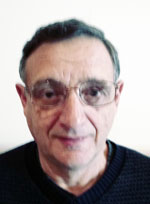By Alex Glikin

SYDNEY, Australia — In the time of pandemic lack of COVID-19 vaccine makes us all vulnerable. We have to rely on medical advice to stay home, keep social distance and not gather in houses or outside. It is tough, frustrating, bad for economy but necessary – thus we obliged. Then mass protests and riots started in support of BLM movement. Twelve hudnred medical professionals stated that mass gathering is good for public health because it promotes social justice reforms. The major medicine’s principle “do not harm” and basic public safety recommendations got ignored.
My friend and his 92 years old mother live in different Chicago suburbs. She became severely sick and called an ambulance. The ambulance did not come for two hours because protesters blocked roads. For the same reason my friend could not come to help his mother. The old lady is fine now but, imagine, it was your mother with a worse outcome. Would it be a consolation to find your mother as collateral damage?
Back to coronavirus prevention – last month I read that drug hydroxycholoquine is successfully used in Costa Rica where it was applied since April. The drug was put on hold because of WHO objection and resumed in June when WHO reversed its decision.
The article states: “The CCSS (Costa Rican Social Security System) had temporarily stopped using hydroxychloroquine for COVID-19 in late May after a study published in The Lancet prompted the World Health Organization (WHO) to do the same. That study — which indicated that using the drug on hospitalized coronavirus patients could increase their chances of dying — has since come under independent criticism, and the WHO has resumed its own hydroxychloroquine study.”
At the end of May, the number of reported coronavirus cases and related deaths in Costa Rica was 1127 and 10 respectively. On 28 June these figures were 3130 and 15.
“We can’t say that’s a result of this medication, but we can’t discard it either” said Roman Macaya, the head of CCSS.
China, France, Belgium, Italy and Bahrain also used hydroxychloroquine with various degree of success. Some countries put the drug on hold due to initial WHO opposition. It remains to be seen whether they resume it usage.
On 29 April, the Association of American Physicians and Surgeons (AAPS) confirmed high effectiveness of applying hydroxychloroquine:
On 3 June CNBC informed: “Trump disclosed last month he was taking hydroxychloroquine daily to prevent infection from the coronavirus. White House physician Dr. Sean Conley released a memo that said that after discussing evidence for and against hydroxychloroquine with Trump, they concluded “the potential benefit from treatment outweighed the relative risks.”
However House Speaker Nancy Pelosi (D-Calif.) said that the president shouldn’t be using the medicine because of his age and weight.
Well, perhaps Dr. Conley ignored these factors when evaluated his patient.
Then BBC wrote on 18 June: “…Other studies have looked at using the drugs as a preventative measure against Covid-19. The Mahidol Oxford Tropical Medicine Research Unit (MORU) is conducting mass clinical trials and has enrolled 40,000 frontline workers in Europe, Africa, Asia and South America, giving participants either chloroquine, hydroxychloroquine or a placebo. Professor Sir Nick White, who’s leading the trial, said: “Most experts agree there is a much better chance of benefit in prevention than treatment.”
Well, perhaps Dr. Conley was right. We are still awaiting Madam Speaker assessment.
I am not a doctor and not qualified to make recommendations towards using hydroxychloroquine. There is no affirmative conclusion and treatment of coronavirus remains an open question. We should hope that medical professionals will keep looking for a scientific rather than a politically motivated conclusion.
In the meantime Costa Rica plan to open its borders from 1 August.
*
Alex Glikin is a retired Information Technology professional and a freelance writer.
Great work, Alex! Thank you!
On hydroxychloroquine:
FDA allowed using hydroxychloroquine only as the last resource in the face of death, while it was known that it is very efficient at the very beginning of catching COVID-19.
That decision by FDA helped to collect and publish data on how dangerous that treatment can be.
My friend, doctor, mentioned the order from the local authorities to stop prescribing this drug.
Very well done, Sasha !
It is a sharp border between good and bad, and I hope, that your publications (present and future)
will help some people to see this border,differentiate the one from another and do not cross it.
Keep doing !